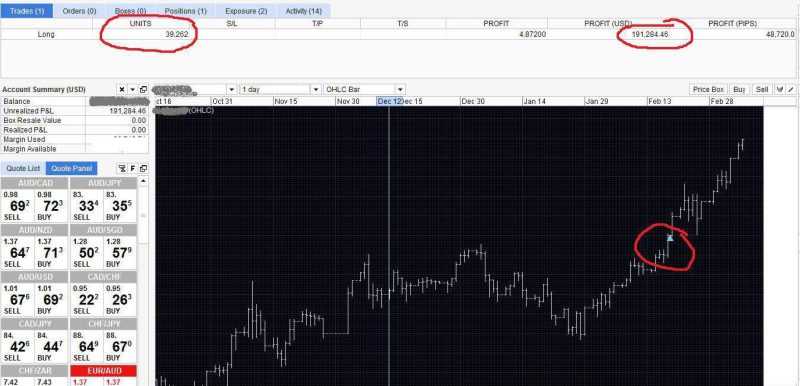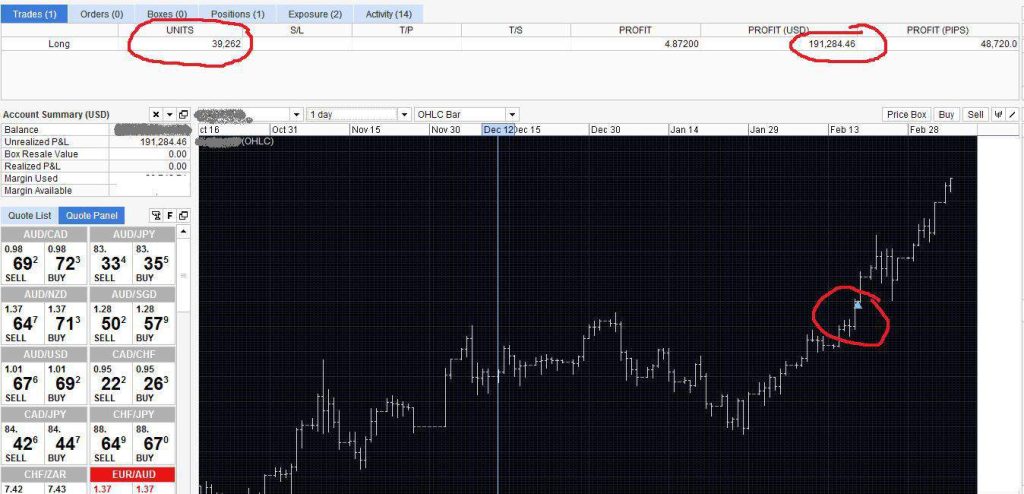Defensive stocks are a bit like the comfort food of investing: reliable, steady, and there for you when times get tough. If you’re looking to protect your money, especially when the stock market gets rocky, defensive stocks are where you want to be. These are shares in companies that make products or offer services people need no matter what’s happening in the economy, like healthcare, utilities, and everyday consumer goods.
What Are Defensive Stocks?
Defensive stocks are like the dependable workhorses of your investment portfolio. Unlike growth stocks that might offer rapid gains (but also significant risks), defensive stocks are all about stability. These are stocks in companies that produce goods or services that people continue to buy no matter the economic climate. Think about it: even in tough times, people still need healthcare, utilities, and essential consumer products. This makes defensive stocks less vulnerable to market swings, offering steady returns and helping protect your investments when the market takes a downturn.
Let’s break down some key characteristics of defensive stocks:
-
Consistent Demand: Companies that produce everyday necessities fall into this category. Whether it’s toothpaste, electricity, or prescription drugs, these products are always in demand.
-
Stable Earnings: Because these companies deal in essentials, their earnings are typically stable, making them reliable choices for investors looking to safeguard their portfolios.
-
Dividends: Many defensive stocks also pay regular dividends, which can provide a steady income stream even when stock prices aren’t soaring.
Now, let’s explore why defensive stocks are particularly important in 2024.
Why Focus on Defensive Stocks in 2024?
The global economy is always in flux, with factors like inflation, interest rate changes, and geopolitical events causing uncertainty. In 2024, several elements make defensive stocks particularly appealing:
-
Economic Uncertainty: After years of market volatility, including the effects of the COVID-19 pandemic and ongoing geopolitical tensions, investors are increasingly looking for safe havens. Defensive stocks offer that safety net.
-
Inflation Concerns: With inflation rates rising in many parts of the world, companies that can pass on costs to consumers without losing demand are valuable. Defensive stocks, particularly in consumer staples and utilities, fit this bill.
-
Interest Rate Fluctuations: As central banks adjust interest rates to control inflation, the market can experience significant volatility. Defensive stocks, which tend to have stable earnings, are less impacted by these fluctuations.
-
Global Instability: Geopolitical events, such as conflicts or trade wars, can shake markets. Defensive stocks, often seen as safe havens, are attractive during such times.
Investors focusing on 2024 are looking for ways to protect their portfolios while still achieving steady returns, making defensive stocks a crucial component of any well-balanced investment strategy.
The Importance of Diversification with Defensive Stocks
While defensive stocks are great for stability, it’s essential to remember that no stock is entirely risk-free. Diversification is key to reducing risk. Even within the category of defensive stocks, diversification can help cushion your portfolio against sector-specific risks.
For example, investing only in healthcare stocks might leave you vulnerable to changes in government policy or industry-specific issues. By diversifying across sectors like utilities, consumer staples, and healthcare, you can create a more resilient portfolio.
Now, let’s get into the seven best defensive stocks to buy in 2024. These stocks are selected based on their strong performance histories, stable business models, and potential to continue delivering consistent returns in the face of economic challenges.
7 Best Defensive Stocks to Buy in 2024
1. Johnson & Johnson (JNJ)

If there’s one company that’s synonymous with reliability, it’s Johnson & Johnson. This is a healthcare giant that’s been around since the late 1800s, and it’s not going anywhere. What makes J&J a standout in any defensive strategy is its diversified product portfolio. They’re not just making Band-Aids and baby powder; they’re a leader in pharmaceuticals and medical devices as well.
Take a look at the numbers—during the COVID-19 pandemic, when many companies were struggling to keep the lights on, J&J was busy generating over $82 billion in revenue in 2020. That’s the kind of resilience you want in your portfolio. Plus, they’ve been increasing their dividend for 59 consecutive years. That’s a track record that few can match, making J&J a cornerstone for anyone looking to weather economic uncertainty.
2. Procter & Gamble (PG)

Procter & Gamble is like the utility player on a baseball team—it does a bit of everything and does it well. We’re talking about a company that makes products you probably use every day, like Tide detergent, Gillette razors, and Pampers diapers. These aren’t luxury items; they’re necessities, and that’s what makes P&G a defensive powerhouse.
Even when the economy took a nosedive in 2008, P&G’s stock didn’t take nearly the hit that many others did. Fast forward to 2023, and they’re still going strong with over $80 billion in revenue. They’ve also been paying dividends for more than 130 years. When you’re looking for stability, this kind of consistency is gold.
3. Walmart (WMT)

When times get tough, people look for bargains, and that’s where Walmart shines. As the world’s largest retailer, Walmart’s sheer size and buying power give it a massive advantage. They can offer low prices that keep customers coming back, even when money’s tight.
In 2023, Walmart raked in over $611 billion in revenue, up from $572 billion in 2022. That’s not just growth; that’s dominance. During the 2008 financial crisis, while many companies were bleeding cash, Walmart’s stock actually went up by 20%. That’s the kind of performance that makes it a must-have in a defensive portfolio.
4. PepsiCo (PEP)

PepsiCo is more than just soda; it’s a global food and beverage empire. With brands like Doritos, Gatorade, and Quaker oats under its belt, PepsiCo has built a diversified product line that keeps cash flowing in, even when the economy takes a hit.
In 2023, they reported revenues of $86.4 billion, up from $79.5 billion the year before. People don’t stop snacking during a recession, and that’s what makes PepsiCo such a safe bet. They’ve been growing their dividend for 49 consecutive years, proving that they’re not just a flash in the pan—they’re in it for the long haul.
5. Coca-Cola (KO)

Like PepsiCo, Coca-Cola is a brand that needs no introduction. They’ve been around since 1886, and their products are available in over 200 countries. Whether it’s Coca-Cola, Sprite, or Dasani water, these are products that people buy day in and day out, no matter what’s happening in the world.
Coca-Cola reported $45 billion in revenue in 2023, a significant increase from $38.7 billion in 2022. Their ability to maintain steady growth, even during economic downturns, makes them a top pick for anyone looking to add some defensive muscle to their portfolio. And let’s not forget—they’ve been paying dividends for over 100 years.
6. NextEra Energy (NEE)

When it comes to utilities, NextEra Energy is the gold standard. They’re the largest producer of renewable energy in the world, focusing on wind and solar power. This isn’t just a utility company; it’s a company that’s positioning itself for the future of energy.
In 2023, NextEra Energy brought in $24.2 billion in revenue, up from $20.8 billion in 2022. People will always need electricity, and with the world moving toward renewable energy, NextEra is set to be a major player. Utilities are already considered defensive stocks because they provide essential services, but NextEra’s focus on renewables gives it an extra edge.
7. AbbVie (ABBV)

AbbVie is a pharmaceutical heavyweight, and it’s got the numbers to prove it. Spun off from Abbott Laboratories in 2013, AbbVie has become a leader in the pharmaceutical industry, thanks in large part to its blockbuster drug, Humira. In 2023, Humira alone generated over $19 billion in revenue.
AbbVie isn’t just resting on its laurels, though. They’re investing heavily in research and development, with a strong pipeline of new drugs on the way. In 2023, they reported total revenue of $58 billion, up from $56 billion in 2022. And they’ve been increasing their dividend for seven consecutive years, making AbbVie a solid choice for anyone looking to add a bit of growth potential to their defensive portfolio.
Comparing Defensive Stocks to Other Stocks
In a bear market, defensive stocks tend to hold their value better than other types of stocks. This is because companies in sectors like healthcare, utilities, and consumer staples sell products that people need, regardless of the economic situation. For example, during the 2000-2002 bear market, while the S&P 500 fell by over 40%, the consumer staples sector dropped by less than 20%.
On the other hand, cyclical stocks—such as those in the automotive or luxury goods industries—are highly sensitive to the economic environment. These stocks might outperform during a bull market, but they can also suffer heavy losses during economic downturns. This is why many investors prefer to include a mix of defensive and cyclical stocks in their portfolios, balancing the potential for growth with the need for stability.
Also Read: What Are Cyclical Stocks?
Conclusion
Defensive stocks play a crucial role in any investment strategy, especially in times of economic uncertainty. These stocks offer the stability and reliability that can help protect your portfolio when markets are unpredictable. The seven stocks discussed—Johnson & Johnson, Procter & Gamble, Walmart, PepsiCo, Coca-Cola, NextEra Energy, and AbbVie—are all excellent choices for 2024, offering both defensive characteristics and the potential for steady returns.
Investing in defensive stocks doesn’t mean giving up on growth; it means being smart about where you allocate your resources, especially when the economic outlook is uncertain. By including these companies in your portfolio, you can help ensure that your investments remain steady and continue to grow, no matter what the market throws your way.
Also Read: Overweight Stocks | How To Use Them
FAQs
What are the best defensive stocks to buy?
The best defensive stocks are those from companies that consistently perform well regardless of economic conditions. Examples include Johnson & Johnson, Procter & Gamble, Walmart, PepsiCo, Coca-Cola, NextEra Energy, and AbbVie. These companies are leaders in essential sectors like healthcare, consumer staples, and utilities.
What is considered a defensive stock?
A defensive stock is a share in a company that provides essential goods or services, such as healthcare, utilities, and consumer staples. These stocks tend to be less affected by economic downturns because their products remain in demand even during recessions.
What are the defensive sectors of stocks?
Defensive sectors typically include healthcare, utilities, and consumer staples. Companies in these sectors produce goods and services that people need regardless of the state of the economy, making them more resilient during economic downturns.
















